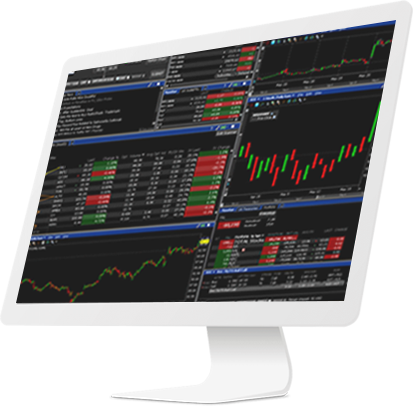Monthly, we update our wholesale investors on what’s happening in the market. Running what’s probably the only late-night trading desk from New Zealand, we’re well-positioned to feel the pulse of the market’s direction.
Bull markets are known to roar and run. Stock prices climb steeply. FOMO boils.
Not this bull market. Not this tentative calf of 2023.
To understand why we’re in a reluctant and uncertain bull market, we need to look at the underlying recovery.
Covid response money-printing coupled with supply shocks led to some of the worst inflation we’ve seen since the 1970s.
Governments and central banks around the world overdid things. Some more than others.
This had the most negative impact on the markets through mid-2022.
Today, markets are recalibrating to price lower inflation and vis-à-vis lower interest rates next year.
These readings drive markets more than events like Ukraine, chip wars, heat waves, or elections.
Some economies are already leading the way, with much lower inflation readings in June 2023. Leading the pack in the developed markets where we focus are:
- US: 3.0% (down from 11.1% in October 2022)
- Eurozone: 5.5% (down from 10.6% in October 2022)
- Spain: 1.9% (down from 10.8% in July 2022)
- France: 4.5% (down from 6.4% in February 2023)
- Germany: 6.4% (down from 8.8% in October 2022)
- Italy: 6.4% (down from 11.8% in October 2022)
- UK: 8.9% (down from 11.1% in October 2022)
- Australia: 6% (down from 7.8% in December 2022)
You’ll have noticed that New Zealand inflation sits at 6%, despite higher interest rates than in Australia. Regulatory constraints may be part of that, but that’s a different conversation.
While market progress on inflation is good news for stock holders, the market is jittering around three concerns:
1) Will the higher interest rates trigger a recession and hurt corporate earnings?
2) Inflation is still beyond target (typically 0-2%). Can it be brought down without reverting to number ‘1’?
3) China’s economy shows all the signs of a deflationary slowdown. Will that further contribute to ‘1’ in developed markets?
My (optimistic) view is that inflation will come down without much economic doom in the developed markets where we invest.
De-risking from China will see new investment (though new cost pressures). If countries like the US seek to reduce subcontracting of their manufacturing there, that requires investment.
Because employment is high, wages have risen, and deflationary forces are in play; some lucky countries may experience a soft landing — especially countries where we invest.
Under that view, this is a great time to buy into a value strategy now, targeting growth with income over the next few years.
So, how did our portfolios go through July?
Managed Account performance*
For the month of July 2023, we were up 5.56% across the composite portfolio (total aggregate return across all portfolios following the strategy).
Another month where we jump our MSCI EAFE benchmark (2.79%).
This brings our return for the 7 months of this year to date (1 January to 31 July, 2023) to 14.66%.
Growing dividend income is also contributing to our return and generating passive income for investors. Many holdings have now returned and increased their payout since the Covid aftermath.
Our average annualised return since inception is 15.93% p.a.
Please see our performance chart for more details.
A money focus alone is myopic
Finally, I’ve been reflecting this month on what makes a good manager and steward of wealth.
If you’re a wealth manager of any skill and integrity, you will see the relationship with your clients over a lifetime. Doing the best you can every day to build and protect their portfolios.
Hence, our business for the long run is to build generational wealth and passive income.
Bull markets come and go. The gains you receive from them are due to the seeds planted earlier.
Further, a wealth manager myopically only interested in money is paradoxically not the sort of person you want running money.
The nature of investing is to try to understand opportunity and risk — day in, day out. And to look after those who join you on that journey.
You don’t understand opportunity and risk solely by looking at trading screens or reading research reports.
You read widely. Study history. Think deeply. Get out and meet people. And pursue other interests, too, that build experience and discernment.
Regards,
Simon Angelo
Editor, Wealth Morning
*Past performance is not an indicator for future performance. Your actual portfolio will differ from the composite portfolio mentioned. The information contained in this document does not constitute an offer to sell or a solicitation to buy an investment, nor should it be construed as investment advice. Wealth Morning Managed Accounts are available to Eligible Investors and Wholesale Investors (not to Retail Investors) as defined in the Financial Markets Conduct Act (2013).
🎯 Our Exclusive Managed Account Service
👉 Secure Your Place on Our Waiting List Today






Simon is the Chief Executive Officer and Publisher at Wealth Morning. He has been investing in the markets since he was 17. He recently spent a couple of years working in the hedge-fund industry in Europe. Before this, he owned an award-winning professional-services business and online-learning company in Auckland for 20 years. He has completed the Certificate in Discretionary Investment Management from the Personal Finance Society (UK), has written a bestselling book, and manages global share portfolios.